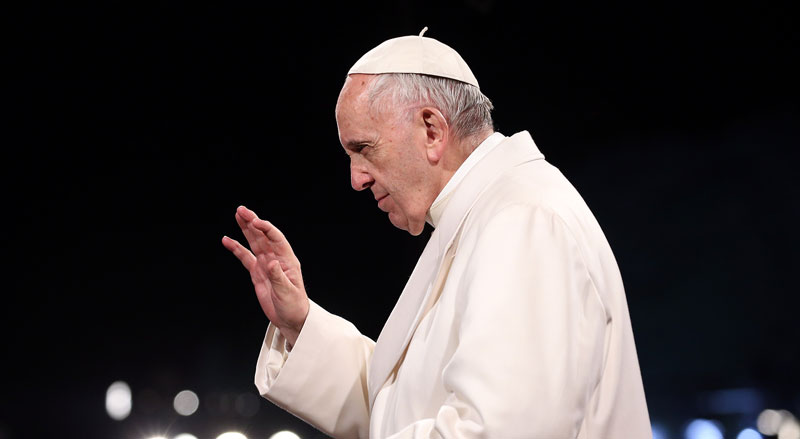The conflict over Valley secession reflects the growing gap between rabbis and the actual reality their flocks experience.
With few exceptions, the rabbinate seems to be totally aghast at the notion of dividing Los Angeles into two cities. Prominent rabbis, including Mark Diamond, executive vice president of the Board of Rabbis of Southern California; Steven Carr Reuben, president of the board; John Rosove, and my own rabbi, Beth Hillel’s Jim Kaufman, have already announced their opposition to the proposal.
Part of this, noted Rabbi Ed Feinstein of Valley Beth Shalom, is a reflection of a broader tendency for the Jewish clergy to be "far to the left" of their congregants. Many come off as knee-jerk supporters of every so-called "progressive" cause. This is clear, it seems to me, from widespread rabbinical support for every leftist cause de jour, from racial quotas and bilingual education, all the way to opposition to war against a terrorist, passionately anti-Semitic state such as Iraq.
Among such people, Feinstein noted, opposition to secession is just another part of the predictable knee-jerk leftist program. Clearly, there is room for discussion on both sides of the issue, but it seems unlikely most of our esteemed, prominent rabbis ever really considered the arguments of the pro-secession forces.
"It has to do with our training," suggested Reuben, head of the 250-member Board of Rabbis. "We tend to see ethical action and mitzvah work putting us on the liberal side of the spectrum."
When one examines the logic for the response, it becomes clear that, for the most part, these rabbis are big on symbols and short on reason or facts. For example, their two prime reasons for opposing secession are clearly based on little more than gullibility to the slick, well-financed anti-secession campaign.
Perhaps the most notable issue they raise is that somehow secession would be bad for the Valley’s poor. There seems to be an assumption that a Valley city — which would have its share of poor people and be almost half minority — would lack the compassion that our rabbinate likes to exude on a regular basis, particularly when in contact with the media and their fellow clerics.
But let’s look at the facts. Over the past 10 years, under the stewardship of the City of Los Angeles, poverty in the San Fernando Valley has doubled, a far higher rate than the rest of the city, according to census figures. "Does this mean the city is working for the poor?" asked former Democratic Assemblyman Richard Katz, who has emerged as secession’s most articulate spokesman.
To see this in perspective, all one has to do is travel to communities in the northeast Valley. These places — like Pacoima, Panorama City and sections of North Hollywood — have suffered from lack of services, street lights, decent police protection. Their representatives in Sacramento and on the City Council, for the most part, serve not the needs of their people, but political caciques who fund their campaigns and ambitions.
Do these areas have to look like this? Not at all. Just visit the small, working-class, predominately Latino community of San Fernando. As a small city, it was able to throw out the influence of the caciques and turn the city into an intriguing model of civic renewal. Is bigger better? It doesn’t seem so.
The current system doesn’t work for much of anyone, but the well-connected. The esteemed rabbis who signed a newspaper ad, apparently do not think that having among the highest taxes on business, among the worst rates of service delivery for everything from libraries, police and fire to street maintenance among major cities in the country is a disgrace.
Similar illogic surrounds the second major assertion by the clerics, that the massive L.A. city is somehow better able to bring in resources from Sacramento and Washington.
"It has to do with clout," Reuben explained. "They have a sense that being part of a larger city — [there is] the perception of being able to bring resources from the federal and state government."
Yet, reality, according to a very detailed study recently released by the Rose Institute at Claremont McKenna College, shows that the big L.A. city actually is among the least successful in gathering resources — including for the poor — from Sacramento or Washington. In fact, according to the Claremont study, Los Angeles received far less per capita from Washington than other major cities in California, including San Francisco, Sacramento, Long Beach, Oakland, San Diego and San Jose. It also did worse than smaller cities such as Culver City, Santa Monica and Glendale.
The situation is even worse on the state level. According to Rose Institute’s analysis, Los Angeles ranks below virtually every city in Los Angeles County in aid from Sacramento. In the state capital, Los Angeles actually has less clout in delivering resources than such small cities as Manhattan Beach, El Segundo, Burbank, Downey and, not surprisingly, plucky little San Fernando.
Now you might say, well, these rabbis are not public policy experts.
Clearly that’s true. But then why must they preach on the basis of ignorance? Jews pride themselves on the relative logic of our faith, but the pronunciamentos of our rabbis sometimes sound about as well-reasoned as the rantings of Christian ayatollahs like Jerry Falwell.
Will this logic gap on secession hurt the rabbis with their congregants? Reasonable rabbis like Feinstein argue that it will not hurt too much. The secession proponents have been poorly led and have not been articulate in making their case, which boils down to how the Valley would be better off as Phoenix.
Only now, with the emergence of the brighter bulbs of the movement, like Katz, Bob Scott, Mel Wilson and Dr. Keith Richman, are they really discussing the real issues. These include the need to decentralize decision making, reduce the size of districts to overcome the entrenched power of the now-dominant trinity of political professionals, organized labor and powerful developers.
Yet the issues raised by the middle-class, multiethnic rebels of the Valley will resonate down the line, long after Nov. 5. More importantly, Feinstein suggested, the Valley secession disconnect foreshadows more serious splits as other issues emerge over the coming year.
Perhaps most important will be those around Iraq and Israel, where most Jews are likely to support the hard-line policies of President Bush over the Neville Chamberlain-like positions of the rabbis’ favorite Democrats, such as former Vice President Al Gore or Sen. Barbara Boxer (D-Calif.).
By 2004, Feinstein suggested, as many as 60 percent of Jews, for example, might support Bush, simply because of his steadfast support for Israel and willingness to stand up to Saddam Hussein’s regime. This support will be higher among the groups who arguably represent the future of Los Angeles Jewry — Persians, Russians, Israelis, North Africans and increasingly conservative post-baby-boom Jewish professionals.
In this evolution, it may well be that our rabbinate, like the mainstream Protestants who are losing out to more in-sync evangelicals, may be so out of touch with their congregants that they will become irrelevant.
The time may come, as Feinstein suggested, that the congregants, tired of the reflexive political correctness approach of the rabbinate, may say, "It’s time for them to shut up" about key political issues.
Down the road, this schism between flock and shepherd could alter the ecclesiastical picture, not just in Los Angeles or across the nation. Throughout history, religious leadership has lost influence, and ultimately been replaced, in part, because its divine preachings no longer reflected human realities. This is one reason why overly legalistic, exclusivist, state-supported Judaism lost out to the more emotionally compelling and inclusive message of early Christianity.
It also may be, in part, why the Protestantism, which spoke to the right of individual conscience and initiative, appealed to an increasingly literate Christendom. It may also explain how Chasidism, with its appeal to joy and spirituality, appealed to Eastern Europe’s oppressed Jews more than traditional Orthodoxy, or why Reform Judaism appealed to modernizing populations in the great cities of Western Europe and North America.
After awhile, even the most passive of flocks learn how to bite a shepherd who has lost his way.






















 More news and opinions than at a Shabbat dinner, right in your inbox.
More news and opinions than at a Shabbat dinner, right in your inbox.